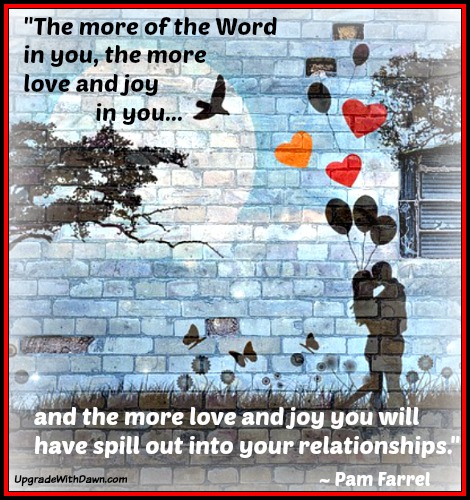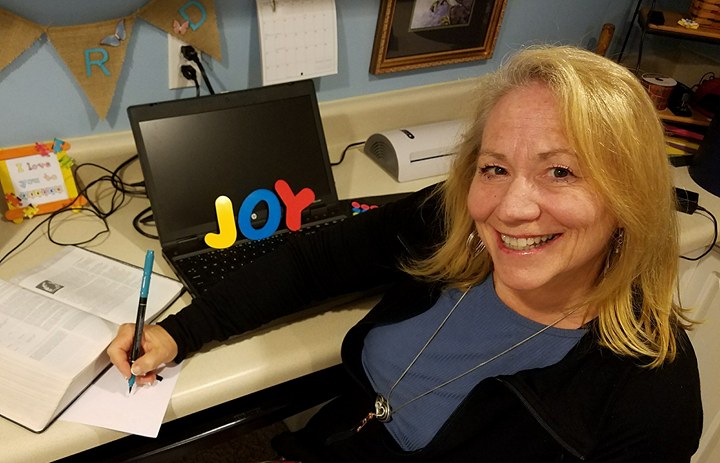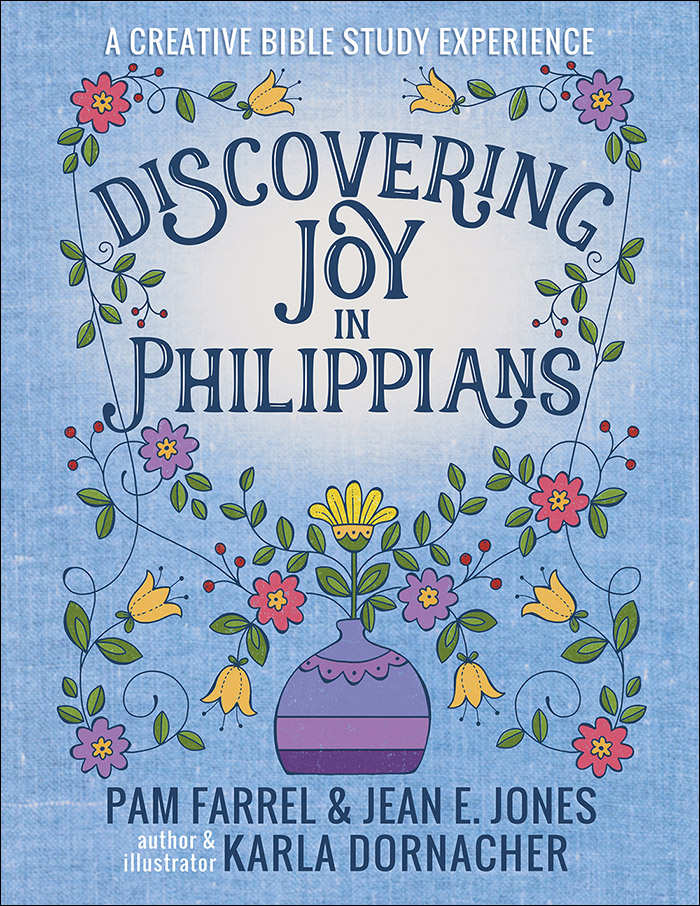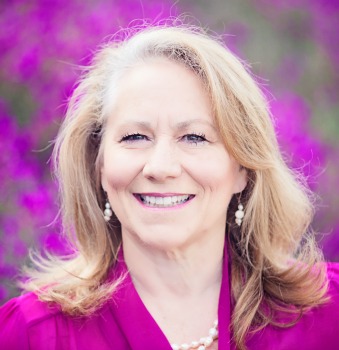Plan for Lasting Love
Pam Farrel is a relationship specialist, and she knows the power of making wise and godly choices that enhance relationships. In this Marriage UPGRADE, she says we need a plan if we want love in our marriage relationship to last.
"A lasting love isn’t a happenstance," Pam says, "rather couples who gain long lasting love all made ONE vital decision: they DECIDED they wanted a long-lasting love! Love is a choice!"
I (Dawn) believe in making powerful choices! And a good place to start, right after our choice to receive Jesus as our Savior, is in our closest human relationship.
Pam continues . . .
We recently celebrated our 40th anniversary. As a gift, our grown sons and daughter in laws, along with  our five grandchildren, all contributed to a book they wrote, 40 Reasons We Value Your Lasting Love.
our five grandchildren, all contributed to a book they wrote, 40 Reasons We Value Your Lasting Love.
Here are a few of our favorites parts from that book—along with four vital choices we've made in our marriage.
You too can gain a lasting lifetime love! Here is how.
1. Sit Face 2 Face
"We love because He (God) first loved us" (1 John 4:19).
This verse was inscribed on our wedding gifts to each other. We knew going in, we would only succeed at long lasting love only if God was kept front and center as the glue to hold us together.
One of the less glamourous but most vital choices we made early in our marriage was to create a Marriage & Family Compass.
This includes:
(1) Marriage/Family Mission Statement
We penned ours about two years into our marriage, inspired by a marriage conference for seminary students lead by Dr. Norman T. Wright.
(2) Marriage/ Family Motto
We wanted a short phrase like you’d see on a coffee mug or T-shirt. Ours is, “Those who honor God, God honors”—based on 1 Samuel 2:30.
(3) Marriage/Family Moniker
This is a family crest. Ours has three L’s that stand for Leaner, Leader, who Loves God (what we prayed our children would grow into); plus two hearts that stand for Farrels keep their promises, especially in marriage; and a cross with a star symbolizing that when you have a vibrant relationship with God, He ignites the God-given passion inside and you “let your light shine” for Him.
We also made a commitment to have a weekly “Monday Morning Marriage Meeting” where we pray, then discuss things like money/finances, calendar items, work and family; and we delegate tasks, make decisions together, etc. In other words, we tackle the important "biz issues" of a marriage.
The Marriage Meet Up and the Family Compass were vital, because we both came from very dysfunctional, chaotic homes. We needed to be proactive and positive.
We saw the fruit of this in the book our family gave us on our 40th anniversary.
- "You love each other—quirks and all"
- "You model healthy communication, aka conflict resolution and forgiveness."
- "Tenacity! We will make it through anything TOGETHER!"
2. Walk Hand 2 Hand
"I pray that you may enjoy good health and that all may go well with you, even as your soul is getting along well" (3 John 1:2).
An obvious tip on gaining a long-lasting love is: You must live longer and stronger by treating your body (and your mate’s body) as “a temple of the Holy Spirit” (1 Corinthians 6:19).
Because we were both athletes when we met at age 19, and married at age 20, keeping active is a part of our love life.
We have always enjoyed a daily prayer walk, hand in hand.
We have supported each other’s exercise pursuits, but the real key is finding some activities you BOTH enjoy doing together.
Some of our favorites are kayaking, paddle boarding, jet skiing, biking, swimming and dancing under the stars—or while waiting for an elevator!
- "You two are not afraid to take risks, as long as you are doing it together."
- "You love going on adventures together—you see life as an adventure."
- "You always take time for date nights."
3. Hug Heart 2 Heart
"I found the one my heart loves. I held him and would not let him go…" (Song of Songs 3:4).
We have cultivated romance. We kiss each other EVERY TIME we say grace.
We put weekly date nights, a monthly day away, and twice-a-year overnight getaways on our calendar FIRST! We even schedule “Red Hot Monogamy!”
- "You are each other’s biggest fans."
- "As a kid growing up, you modeled for us vulnerability, forgiveness, grace, pure love, joy and commitment."
- "You both love waffles and spaghetti."
4. Bow Knee 2 Knee
"You will pray to him, and he will hear you, and you will fulfill your vows" (Job 22:27).
Prayer was a part of our relationship from the first moment Bill first asked me out on our first date!
We pray for one another and with one another.
We pray, hug and kiss, when we greet and when we depart from each other.
We pray over meals, over decisions, over family and friends, and over our failures and frailties. We wrap up in each other’s arms each night and pray and thank God for each other and one more day together.
- "You guys have defied the odds and have a HEALTHY marriage."
- "You have completely changed the legacy of our family."
- "You model a chord of three strands is not easily broken."
Do you have hopes and dreams for your marriage?
I remember a drive together as a newly-engaged couple when one of us said, “We are years away from starting a family, but what will we want our kids to say about us on our 25th or 50th wedding anniversary?”
We made a verbal list, then we prayed and asked God to fulfill those hearts desires.
And He is!
What new habits or activities do you want to add into your marriage or your family to secure the future God longs to give you?
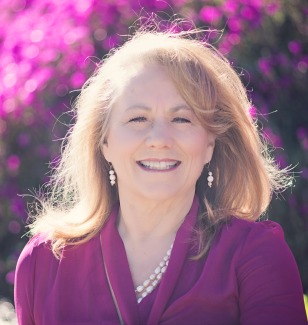 Pam Farrel is a cheerleader for women everywhere! Bill and Pam Farrel are international speakers, relationship specialists, and authors of more than 50 books
Pam Farrel is a cheerleader for women everywhere! Bill and Pam Farrel are international speakers, relationship specialists, and authors of more than 50 books 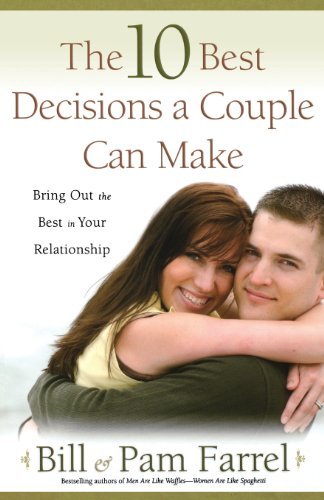 including the bestselling: Men Are Like Waffles, Women Are Like Spaghetti; 10 Best Decisions a Couple Can Make (which explains how couples can create their own Family Compass: Mission, Motto, Moniker); Red Hot Monogamy (with more than 200 romance ideas). Their newest book is Marriage Meet Ups: A Planner for Couples Who Want a Productive, Passionate and Purposeful Life (to be released the end of January 2020). Discover more about Pam or the Farrels' ministry at www.Love-Wise.com
including the bestselling: Men Are Like Waffles, Women Are Like Spaghetti; 10 Best Decisions a Couple Can Make (which explains how couples can create their own Family Compass: Mission, Motto, Moniker); Red Hot Monogamy (with more than 200 romance ideas). Their newest book is Marriage Meet Ups: A Planner for Couples Who Want a Productive, Passionate and Purposeful Life (to be released the end of January 2020). Discover more about Pam or the Farrels' ministry at www.Love-Wise.com
 Post a Comment → Posted on
Post a Comment → Posted on  Sunday, January 5, 2020 at 10:12AM
Sunday, January 5, 2020 at 10:12AM  Health,
Health,  Lasting Love,
Lasting Love,  Lasting Love in marriage,
Lasting Love in marriage,  Love in Marriage,
Love in Marriage,  Marriage,
Marriage,  Pam Farrel,
Pam Farrel,  Romance in Marriage,
Romance in Marriage,  Upgrade with Dawn,
Upgrade with Dawn,  direction in marriage,
direction in marriage,  prayer in marriage Upgrade Your Life
prayer in marriage Upgrade Your Life  Marriage,
Marriage,  Relationships
Relationships 









